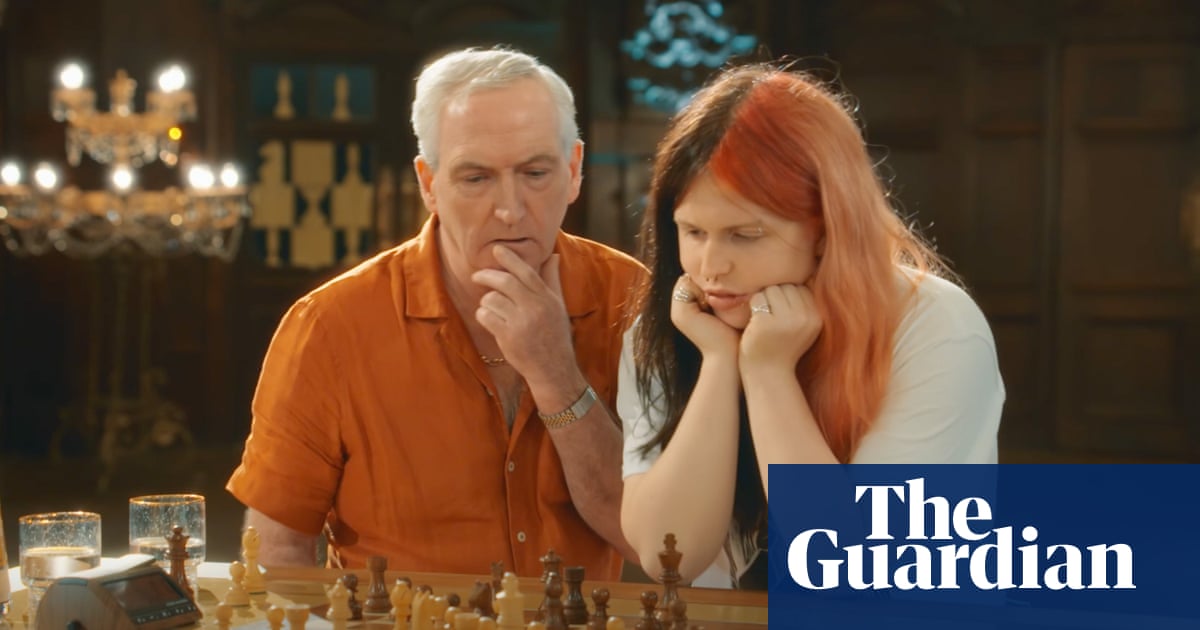BBC Two’s Monday evening showChessMasters: The Endgame reached its final this week amid a continuing debate between experts, who found it patronising, and social players, novices and children who enjoyed its light touch and focus on personalities. The series was placed in a testing environment, the 8pm slot, sandwiched between the intellectual heavyweights Mastermind and University Challenge.
Viewer numbers, as supplied by Broadcast, peaked in the first week at 890,000, then gradually dipped to a low of 535,000 on Easter Monday before rebounding to 655,000, a 5.5% share of the viewing audience, for the final week.
However, Charlie Bunce, director of programmes for the series production company Curve Media, said in an email tochess.comthat the first episode had attracted just under 1.2m viewers, describing that as “a great success”, and that in the rest of the series the programme had “held its share”. Chess.com has afull pictorial reporton the series.
The grandmaster presenter, David Howell, created innovative challenges for contestants, including pawn races, memory tests set by his friend Magnus Carlsen, puzzles involving checkmates in one, two, three, four and five moves, and mini-simultaneous exhibitions, all part of the elimination process to produce a single winner.
English Chess Federation sources believe that the decision whether to commission a second series is in the balance. BBC policy is often to allow a new show a couple of series to find its target audience.
The Richie v Thalia final was decided when the older player, a piece up, chose 1 Qf2? in the diagram, got into time trouble, and was beaten.
There is now an entire32-page threadon the English Chess Forum about Chess Masters, with its detractors complaining about excessive hype by Anthony Moturin and the difficulty of following the puzzle solutions, while its advocates praise the soft approach needed to bring new players to the game.
What do Guardian readers think? Tell us in the comments section.
Following Freestyle successes for Carlsen, the world No 1, and setbacks for the Indians led by the 18-year-old world champion, Gukesh Dommaraju, the next major tests in classical chess are approaching.
On Wednesday the Superbet Chess Classic Romania starts in Bucharest, with world top 11 players Gukesh, Fabiano Caruana, Nodirbek Abdusattorov, Praggnanandhaa Rameshbabu, Alireza Firouzja and Wesley So all in action.
Bucharest will be followed by Norway Chess at Stavanger, starting on 26 May, where the six competitors in a double-round all-play-all are Carlsen (Norway), Hikaru Nakamura and Caruana (US), Gukesh and Arjun Erigaisi (India) and Wei Yi (China).
Sign up toThe Recap
The best of our sports journalism from the past seven days and a heads-up on the weekend’s action
after newsletter promotion
Each will have an individual motivation. Carlsen will want to show continued classical supremacy, a strong Nakamura result will provide impetus for him to qualify for the 2026 Candidates, Gukesh will need to prove that he really deserves his world crown, Caruana will aim to restore his previous No 2 status, while Erigaisi and Yi will try to confirm their places among the super-elite.
Meanwhile, April has been a good month for England’s best players. Nikita Vitiugov, the former Russian who is now England No 1, scored 2.5/3 in the competitive German Bundesliga. Shreyas Royal, 16, England’s youngest grandmaster, achieved solid 2500+ performances at Reykjavik, Iceland, and Menorca, Spain, while Supratit Banerjee, 11, surpassed a 2300 rating and so qualified for the Fide Master title.
At home, GM Peter Wells won the English Senior 50+ championship while WIM Natasha Regan captured the women’s crown. Paul Townsend and WGM Sheila Jackson took the 65+ titles.
3970:1 Qa6 Na5 (to stop 2 Qb7 mate) 2 Qb7+! Nxb7 3 Na6+ and if Ka8 4 Ndxc7 mate or Kc8 4 Ne7 mate.
Richie v Thalia:1 Qg6! (threat 2 Rf8+! Kxf8 3 Qf7 mate) Qd8 2 Rf7 Bf6 3 Nd7! with no reasonable defence for Black.
